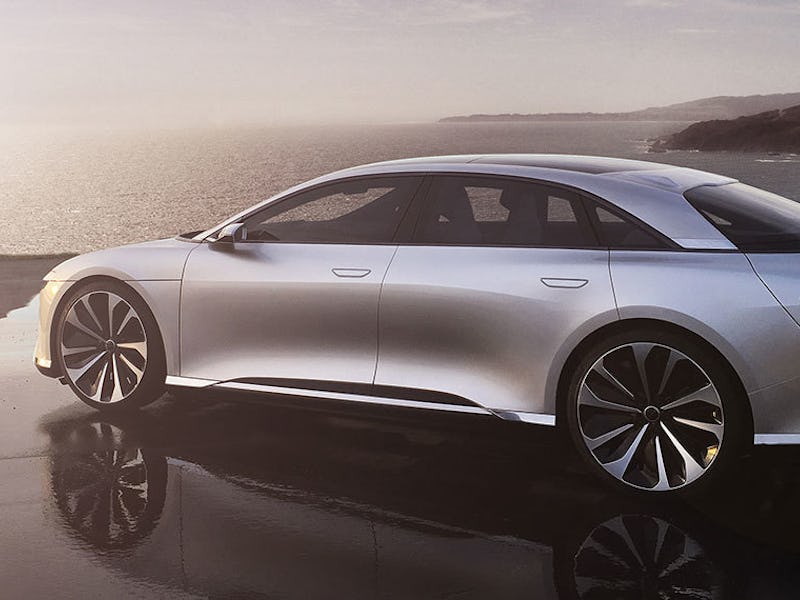Lucid Motors is creating a luxury electric car that acts like a giant pair of Bose headphones. The Lucid Air will be priced at around $100,000, and the company is putting out all the stops to deliver premium quality. The car uses active noise cancellation technology to refine the three sounds created during regular driving: powertrain noise, road noise, and wind noise. When production starts in late 2018, the resultant car should provide a smooth, luxurious drive isolated from the noises in the wider world.
The team uses NVH engineering, which stands for Noise and Vibration Harmony. It’s a technology that takes into account the unique ways electric cars sound on the inside. Below 60 mph, an electric car’s internal sounds are dominated by road and wind noise, as the powertrain is significantly quieter than a conventional internal combustion engine.
“Make no mistake, creating quality takes more than just attention to detail,” Greg Goetchius, NVH Engineering manager, said in a blog post on Wednesday. “The right technology is just as important. Here, Lucid is forging a new path.”
The designers studied the car’s materials to understand how the wind and road create noise around the car. For example, simulations revealed how special glass could reduce the internal noise. The noise spectrum plot, below, shows where the wind noise is made in regular driving:
Tires actually provide a ton of drag, apparently.
The team found that acoustic laminated glass, where special materials are sandwiched between panes of glass, would have a significant impact on the noise produced using these lab simulations.
Beyond special materials, the designers used more traditional noise-cancelling methods found in high-end headphones. The car listens for internal noises, produces an identical and opposite wave, and plays it through the car’s speakers. The clashing waves cancel each other out. This is known as active noise cancellation, and it’s how headphones are able to reduce surrounding noise in small packages. To capture the complex sounds produced by the road and create an effective cancellation wave, the car uses eleven speakers and several digital signal processors that can counteract the noise.
Electric car noises are playing a crucial role in new safety regulations. The National Highway Traffic Safety Administration (NHTSA) announced in November that cars will need to comply with new sound rules by 2019. The rules deal with external noises, but Lucid’s focus on the new challenges brought to the table with electric cars will mean it’ll be well-equipped to adapt as the new rules come into force.
